Sleep and mental health
We all need to sleep and it's an important part of our lives. But many of us have problems with it. These problems can affect you more as a young person, for lots of reasons.
Struggling with sleep can feel difficult to cope with. It can affect your mental health and wellbeing. But you're not alone and there are things you can do to make it easier.
This information is for you if you want to understand more about sleep. It focuses on how it's linked to mental health and how poor sleep can affect you.
Contents
Jump to page information on:
Don't be afraid to get help for your sleep, it's really important to your life.
Why is sleep important?
Sleep is important for both our physical and mental wellbeing. It helps our brains and bodies work at their best, helping us function day-to-day.
Sleep helps our bodies grow and heal. In some cases, it can help protect us from health problems in the future. It also allows us to cope with our emotions and store and sort our memories.
When you've not slept well, you might feel less energised or able to cope with everyday life.
Common myths and opinions about sleep
It can be confusing and worrying if you feel like you're not getting enough sleep, or good enough sleep. You might have heard lots of different opinions about how you should sleep, but good sleep can mean something different for everyone.
Let's look at some common ideas you might have heard about sleep.
Sleep is linked to mental health – true
If we sleep badly, we might begin to feel less well. Being tired can make us feel low or anxious. If you're struggling with how you're feeling, it might affect your sleep too.
Sleeping is something you have to learn how to do – false
Falling asleep is something your brain and body do together naturally. There aren't necessarily things you have to do, or actions you need to take for it to happen. It's okay to struggle with falling asleep too, and there are things that can help you fall asleep more easily.
Everyone needs the same amount of sleep – false
There's no perfect amount of sleep. It's different for everyone. How much sleep you need depends on many different things, like your age and what's going on in your day-to-day life.
It's important to think about how good your sleep is as well as how much you're getting. If you're feeling tired during the day and struggling with things then you could need more sleep, or better sleep.
At sleepovers, all of my friends would happily fall asleep and I would sit in bed sadly, knowing that I would be awake and alone for hours.
Young people need more sleep than adults – mostly true
As a young person, you might find that your sleep looks different to people who are older than you.
You might need more sleep to cope with changes in your body and your brain. For example, going through physical changes like puberty can affect your sleep. You might also find that it takes you longer to fall asleep or that you get tired later than someone older than you.
A typical amount of sleep for a young person is between 7 and 11 hours each night, more for younger people, but everyone is different.
It's normal for your sleep to change – true
Just as it's normal for things in your life to change, it's normal for your sleep to change too.
Over time, you might find that you:
- Find it harder to fall asleep
- Prefer to stay awake later at night and get up later in the day
- Have different sleep patterns to people older than you
- Sleep less than you did when you were younger
Changes to your sleep and sleep difficulties are common, but they can get better in time. For more information, see our tips to help with your sleep.
Struggling with your sleep is bad for your health – it's complicated
Lots of research says that bad sleep might be bad for your mental and physical health, but nothing is very clear. And if you're struggling with your sleep, there might be other things affecting your life and your health. It can be hard to separate them out.
We don't have clear scientific research to know that poor sleep is causing anything on its own. Our lives have lots of things going on and can be very complicated. Sometimes it's important to just do what works best for you.
It can be difficult not to worry about things like struggling with your sleep. Try to remember that there are lots of other ways of looking after your wellbeing that might be easier.
How is sleep linked to my mental health?
There is a close relationship between sleep and mental health. If you're struggling with your mental health, this can affect how well you sleep.
For example, if you're feeling anxious, your worries might keep you awake at night. Or if you're feeling low and unmotivated, you might sleep more.
Struggling with your sleep can also impact your mental health, making you feel anxious or low. You might find it harder to do day-to-day tasks, which can then negatively affect your mental health.
Sleep problems could show that you're struggling with how you're feeling, or they could be the cause of how you're feeling. It can be hard to tell, and you might not see a clear link, as they can affect each other.
My sleep problems are linked to ADHD, but I didn't realise this until recently, despite struggling with insomnia since a young age.
How can poor sleep affect me?
Struggling with sleep can be different for everyone.
Some problems you might experience are:
- Finding it hard to fall asleep or stay asleep, like waking up earlier than you wanted to
- Having specific things disturb your sleep, like nightmares or memories
- Finding it hard to wake up, get out of bed or stay awake during the day
- Feeling tired or sleepy during the day
- Sleeping so much that it affects your daily life
My mental health has a big impact on my sleep. Sometimes, if my head is cluttered with events going on in my life, my brain cannot shut off and therefore I get little sleep.
If you're struggling with poor sleep, you might find that you:
- Struggle to cope with your emotions, like getting annoyed easily, or feeling angry. You might also feel overwhelmed and find yourself more worried about certain things.
- Struggle with your mental health or feel like symptoms of a mental health problem are worse.
- Feel physically unwell, like having headaches or stomach pain. Poor sleep could also make physical health problems you have feel worse.
- Feel like you have no energy. This might make it harder for you to concentrate at school or work, or do things you normally enjoy doing.
- Struggle with friendships and relationships, like arguing more with people you’re close to.
- Feel like you’re taking more risks, like changing the way you drink alcohol, or take drugs.
Struggling with your sleep can affect you in different ways if it lasts for a long or short amount of time. Everyone is different and you might find some things are harder to cope with than others.
My biggest tip would have to be don't be too hard on yourself. It's really common to struggle with your sleep, but there are lots of great tips out there to help you.
Why could I be struggling with sleep?
There are lots of reasons you might be struggling with sleep. You may experience one or many of these things and they are often linked together.
Some things that might affect your sleep are:
- Struggling with your mental health or your feelings. This could include feeling worried about school or work. You could also be coping with a mental health problem.
- Experiencing problems at home. This might include difficult life events like a break-up, losing someone you love or problems with your family.
- Experiencing problems at school or work. You might be dealing with exam stress, or moving to a new school. You might have to stay up late or wake up early for school, or work. That can be hard to adjust to, as well.
- Changes in your surroundings or your daily routine, like the change in seasons. When it gets lighter in the summer, you might find it harder to get to sleep. Or, when it's darker in the winter, you might feel more tired during the day, or find it harder to wake up.
- Struggling with your physical health. If you're feeling unwell or are dealing with physical symptoms you might struggle to sleep. Physical changes, like puberty, or the side effects of medication, can also be difficult.
- Struggling with where you sleep. This might include living in a noisy or bright area, sleeping in the same bed or room as someone else, or being in hospital. You might also not feel safe where you live, or not have a place to live.
- Not having control over your sleep. This might mean not being able to control the time you go to sleep or wake up. This could be for lots of reasons. For example, because your parents, carers or guardians have rules for going to bed. Your work hours, or the work hours of someone you live with, could also affect this.
- Being a young carer. You might be looking after a relative, or helping with younger siblings. This might mean you're having to cope with a lot of responsibility, or wake up to help someone else, so you're not getting as much rest as you need.
- Having experiences of trauma, like abuse or violence at home.
- Experiencing discrimination, like racism and homophobia.
- Being neurodivergent, like being autistic or having ADHD. This might include feeling restless at night or having lots of thoughts that keep you awake.
- Other temporary changes to your sleep. This might be for religious or cultural reasons, such as waking up for sehri during Ramadan. Travelling and jetlag can also disrupt your sleep.
Being autistic has a real impact on how easy it is for me and my friends to get into a good sleep routine and feel comfortable and relaxed.
Insomnia
Insomnia is the term doctors and healthcare professionals use if you have problems sleeping on a regular basis. You might be experiencing insomnia if you're struggling with going to sleep and staying asleep.
Night terrors and nightmares
If you're having a night terror you might talk, shout or move about in your sleep, but you're unlikely to remember it in the morning.
Nightmares are bad dreams that you wake up from. You can sometimes remember them once you have woken up.
Sleep paralysis
If you're experiencing sleep paralysis, you might feel like you can't move or speak when you wake up, or when you're falling asleep. This can be really frightening. You might also feel like someone is in your room or that something is pushing down on you.
Sleepwalking
Sleepwalking means you might walk or do things while you're asleep. Although your eyes are open, you might not be aware of what you're doing or recognise other people.
Sleepwalking is common but it can also be a sign that you're not getting enough sleep. If you're feeling stressed or anxious, you could be more likely to sleepwalk.
You could also download and fill in our ‘What's disrupting my sleep?’ resource to look at what may be affecting your sleep:
- Download PDF – opens in a new window
- Download Word file – opens in a new window
You can use this to write out tips for things you might be able to change. Even if there are only small things you can change, they can really help.
It might not be clear what is causing you to struggle with sleep and it's likely to be a combination of things. You might need to try lots of things to help with your sleep, or tackle things one at a time. You might also want to try a totally different approach, too.
The reality is that for many people good ‘sleep hygiene’ or night-time routines can't completely solve your sleep issues, although they are definitely worth trying.
Where else can I get support?
Whatever you're experiencing, and whatever you're feeling, is valid. If you think you could have a sleep problem, or if you're struggling with your sleep and mental health, you deserve help.
As well as trying some of our sleep tips, you could talk to your doctor. They might have suggestions on things that could help. They could refer you to a service like Child and Adolescent Mental Health Services (CAMHS), who might be able to help you cope with how you're feeling. Your doctor could also refer you to a sleep clinic to help manage sleep disorders. But it can take a while to get an appointment for these services.
Don't be afraid to get help for your sleep, it's really important to your life.
Sleep medication
Sleep medication isn't usually given to young people. Normally, it's only given if nothing else has worked and your sleep is very poor.
You could also be prescribed medication for sleep if you have a mental health problem or are neurodivergent – for example, if you're autistic, or have ADHD. Sometimes medication you're already on can help with sleep, too.
If you're thinking about trying products to help you sleep from somewhere like a pharmacy, it's best to talk to your doctor about it first.
Child and Adolescent Mental Health Services (CAMHS)
These are services that support young people with their mental health.
You might see them called different names sometimes, but they offer the same type of services for young people:
- In Wales, they're called Specialist Child and Adolescent Mental Health Services (SCAMHS)
- In England or Wales, you might also hear them called Children and Young People’s Mental Health Services (CYPMHS)
Find out more in our CAMHS information hub.
Discrimination
Discrimination is when someone treats you differently or unfairly because of:
- Your age
- Your disability
- Your gender
- Your gender identity
- Your sexuality
- Your relationship status
- Your religion or beliefs
- Your race, skin colour or where you were born
- Being pregnant or having a child
In the UK, a law called the Equality Act protects you from discrimination.
The Equality Act says you have a disability if you have a physical or mental health problem that has a substantial, negative, and long-term effect on your day-to-day life.
Visit our full treatment and support glossaryThis information was published in July 2023. We will revise it in 2026.
The quotes on this page are from young people we spoke to while making this information. They've given us their consent to use their quotes in our information. The words, experiences and opinions in the quotes are not related to the young people shown in any of the photographs we use.
References are available on request. If you would like to reproduce any of this information, see our page on permissions and licensing.













